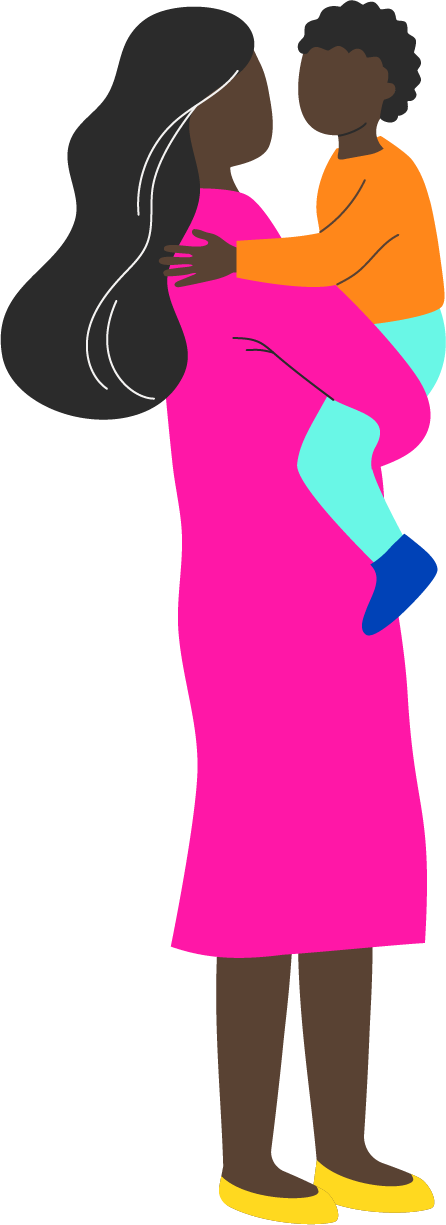Maslow’s Hierarchy of Needs Was Unfinished. What’s Next for Humankind?
You're reading:
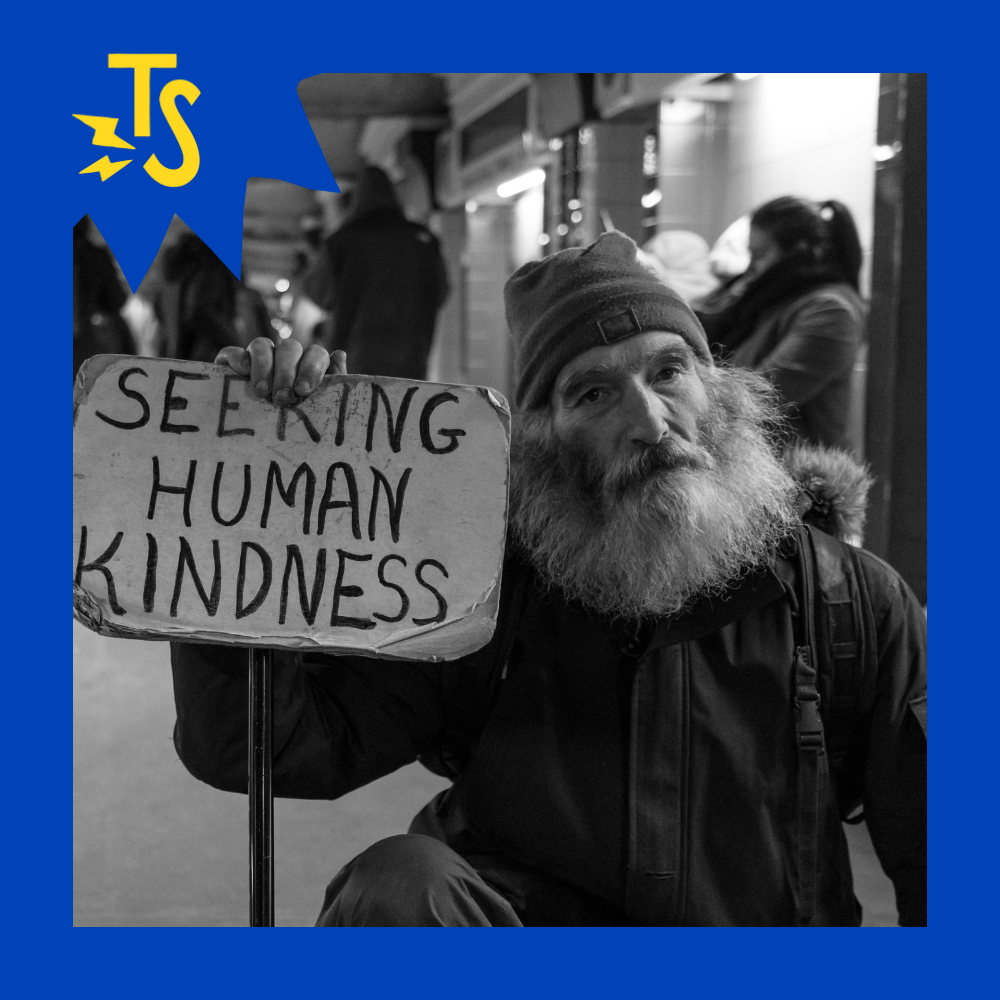
Maslow’s Hierarchy of Needs Was Unfinished. What’s Next for Humankind?
Can we go beyond the self, to find greater meaning in life?
Striving to change the world is a tricky undertaking when you’re worried about paying the bills. No matter how much we worry about climate change, or violence and war erupting across the world, or Artificial Intelligence snatching jobs out of the hands of our children, when it’s hard to cope with life right now, there’s little room for thinking beyond our personal circumstances.
And let’s face it, for an awful lot of people, life is tough right now. A whirlwind few years has left families rocked by crisis after crisis: losing loved ones to Covid-19, losing jobs in the resulting financial chaos, and on top of that, a cost of living crisis which has seen prices of everyday basics like food and fuel skyrocketing. Yet again, those who are struggling most are hardest hit.
So it becomes that huge portions of society are so focused on everyday survival that they don’t have the resources to give to bigger personal goals and desires, or towards helping to address the broader problems facing the world. Why does this matter? Because people who feel the sharp pain of being overlooked, under-valued and often unheard, are those who tend to have the insight and the compassion to know how to help others in similar boat. Those who have lived through great pain, experienced trauma, felt the impact of cruel policies and the effects of being on the receiving end of systems that are unfit for purpose – they are the people who are often perfectly placed to know what to do about it. They are passionate changemakers and advocates for others – but only when they have enough capacity and resources to allow them to step into such a role.
When American psychologist Abraham Maslow coined his now-famous Hierarchy of Needs the world was in the grips of war. It was 1943 and a deeper understanding of human behaviour was certainly needed. His paper “A Theory of Human Motivation,” and subsequent book, “Motivation and Personality” outlined a theory that humans have a hierarchy of needs, the most basic of which must be fulfilled before a person can aspire to meeting more advanced needs. He believed that all human beings have an innate desire to become ‘self-actualised’ – the highest and best version of themselves – but to achieve this, other needs have to be met first. This makes perfect sense, after all, how can we aspire to fulfil our unique potential if we don’t have a roof over our head, or our stomachs are empty, or we have no social circle surrounding us to give us the support we need?
For years, it was understood that Maslow’s pyramid or hierarchy of needs was complete, and that this act of ‘self-actualisation’ was the pinnacle of human potential. Our mission in life was to become a version of ourselves that is self-aware, self-accepting, unconcerned with the shifting opinions and whims of others, and instead rooted in our own sense of self. But is that enough?
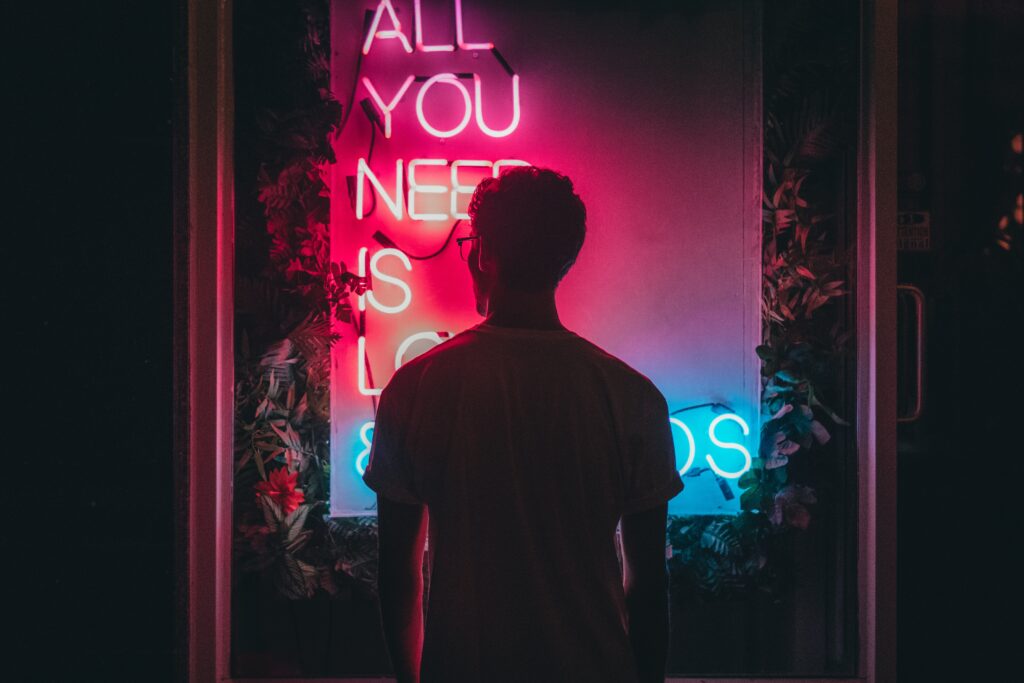
Maslow’s hierarchy focuses solely on our individual needs, be they basic demands or loftier goals, but critics have always proclaimed that this misses a crucial perspective. While individual needs matter, we are also part of communities and what we do affects others. Human beings are social creatures, we are intrinsically motivated to seek out connection and relationship with others, so while we’re busy reaching our own pinnacle of being, what about those who can’t make it off the starting blocks in the race to self-actualisation? At what point do we look beyond our own needs and instead focus on the needs of others?
After Maslow’s death in 1970, writings in his journal came to light which suggested he was having doubts with his own theory and whether self-actualisation was the ultimate goal of human development. Perhaps the inevitable facing of his mortality precipitated a shift in perspective. After all, when considering the possibility of having a short time left on Earth, matters of the self become less important, and instead, what we’ll leave behind reaches prominence in our minds. With the possibility of the self no longer existing, our own life with its personal wants and needs, goals and dreams, struggles and problems seems of less importance. Instead there is an awareness of a greater perspective and a yearning for connection and for meaning beyond the self.
Paradoxically, it is through this process of fully coming to know the self that we move beyond the self – coming to experience what spiritual and religious practices have spoken of for centuries, and recognising that the self is but an illusion of thought, and from a broader perspective we are just part of the whole. There is no separation between us and the rest of life, apart from in the mind. In this stage we have transcended the self, which as Maslow himself realised is greater than self-actualisation.
“Transcendence refers to the very highest and most inclusive or holistic levels of human consciousness, behaving and relating, as ends rather than means, to oneself, to significant others, to human beings in general, to other species, to nature, and to the cosmos.”
(Maslow, 1971, p. 269)
For most of us, self-transcendence is a concept far removed from our day to day lives, and the world at large seems more attached to the idea of self than ever before. Concepts of ‘me’, ‘mine’ and ‘I’ are woven into the fabric of society, from social media platforms that sell the illusion of users being unique and special, to the latest iPhone, which, even in its name, promotes the idea of individualism, promising to connect us with the world but usually losing us to endless scrolling. Yet people are increasingly searching for more meaning in their lives, waking up to the discord we have created in the systems that serve the few at the expense of the many.
The world has undoubtedly and significantly changed since 1943, yet the same overarching themes of life still play out. War, separation, judgment, political dramas and personal crises are very much a part of modern-day life, but now as a collective we are better informed, have access to more knowledge and perspectives than ever before, instant communication and global connections. Our radius of influence has vastly increased, and with that comes an awareness that there is a choice. We could create societies that are more peaceful, more equitable, less focused on wealth and power for the few at the expense of the many, but to do that we must look beyond the notion of ‘me’ and ‘mine’ and instead begin to embrace concepts of ‘we’ and ‘us’.
Perhaps Maslow was right – seeking to become the full version of ourselves is crucial, but it doesn’t end there. We then have to go beyond ourselves and find a broader purpose. In the language of The Spark, the goal of self-actualisation can be likened to the process of connecting within and finding our Spark, but it is through the sharing of our Spark that we experience transcendence.
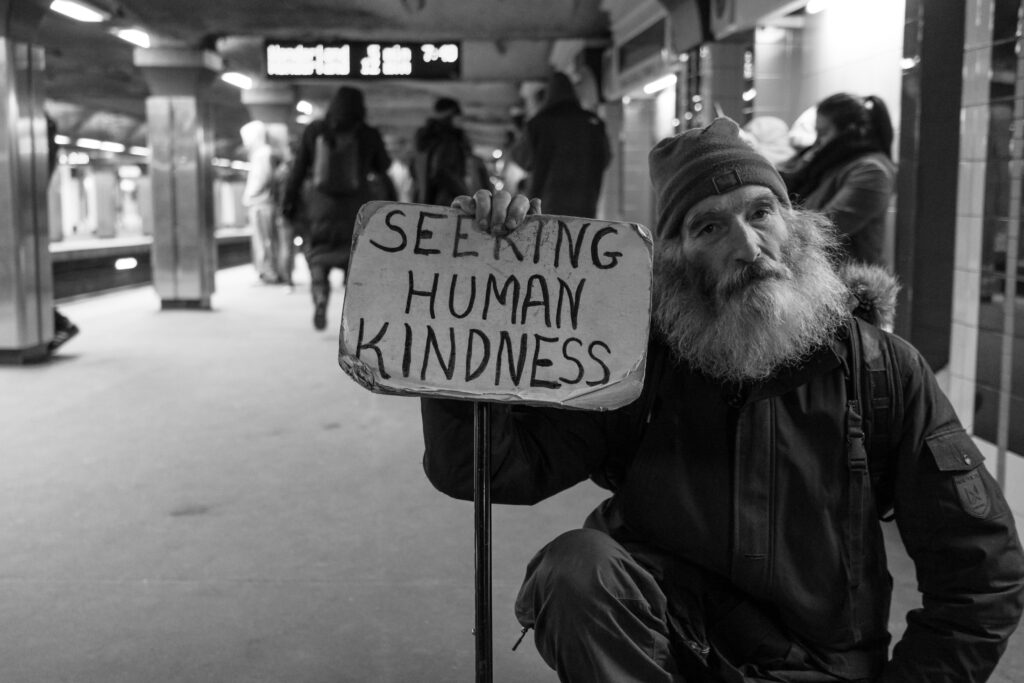
Connecting with our sense of joy and passion and feeling as though we are living as the person we were always meant to be is a wonderful experience, but one that begs to be shared. When we allow ourselves to be seen and are able to share our light simply for the joy of being, the self becomes less important and we experience a deeper connection to the world around us. What’s more, the sharing of our Spark creates a gateway to allow others to do the same.
When our energy and intention shifts from ‘me’ to ‘us’ there is a natural, heart-powered desire to help, support and uplift others. We transcend our own problems and desires, and instead strive to create the conditions for others to flourish as we are. A ripple effect takes place, as each person uplifts the next. There is no striving for personal gain when we realise we are all ‘in this together’ and what affects one ultimately affects all.
Maslow’s hierarchy of needs may have been unfinished, but so too are we – each of us a never-ending project that continues to evolve and grow to new levels of awareness and self-knowledge. Perhaps now it’s finally time to step away from the never-ending search for what we need and feel we are missing, and instead recognise that it all exists, right there within us. Only through the act of sharing our Spark and seeking to uplift others will we come to finally see it for ourselves.

About
the author
Hi, I'm Nikki
I created The Spark when I realised I’d lost touch with my own inner light, buried under years of over-work and overwhelm. After witnessing far too many children becoming smaller versions of themselves, shrinking back, disconnecting and becoming disillusioned, I’m on a mission to ignite my Spark to help children to find theirs, changing the way we nurture small humans into being.
What started as a journey of self-discovery is growing into a global movement to create a better childhood for all children and young people. Will you join me?
Follow Nikki:
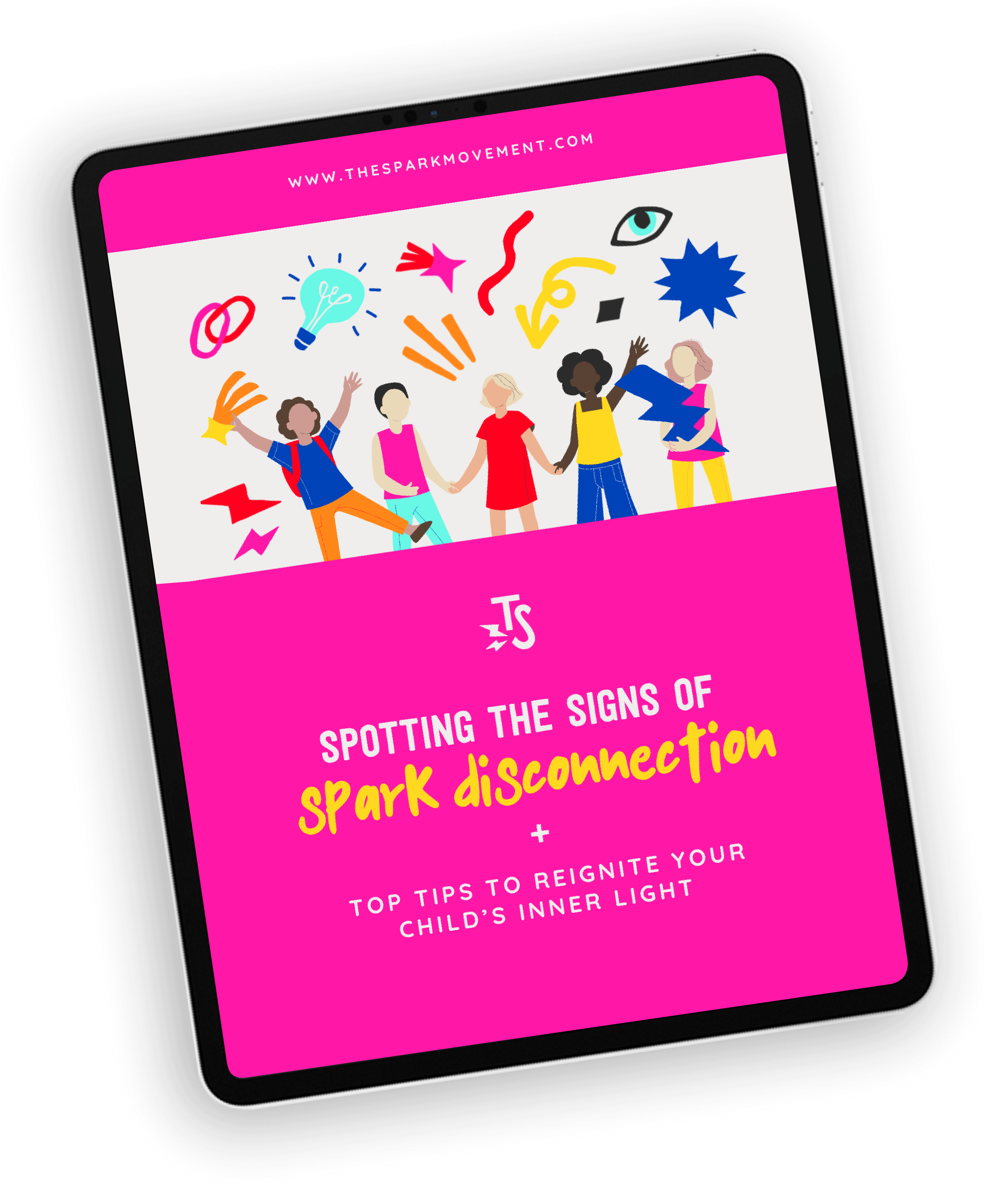
Need help to reignite your
child’s Spark?
Get our free guide to spot the telltale signs of Spark disconnection and learn how to reconnect your child to their inner light and joy.
Tell me more!
Sign up to our newsletter to be the first to hear about our tips, tools and training that will change the world for children.

